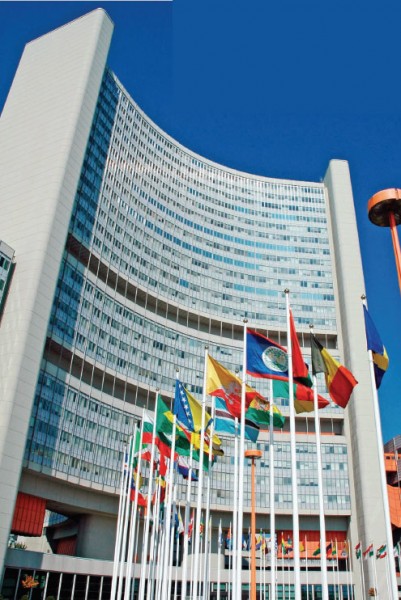Global Crisis: Every Ten Minutes, a Woman Is Killed by Her Partner or Family Member
For women and girls around the world, their own homes remain the most dangerous place: in 2024, an estimated 50,000 women and girls were killed by their (ex) partners or family members. This equates to one femicide—the killing of a woman because of her gender—roughly every ten minutes. These alarming figures were published by the United Nations Office on Drugs and Crime (UNODC) and UN Women on the International Day for the Elimination of Violence against Women.
 The UN report on International Day for the Elimination of Violence against Women reveals shocking figures remain unchanged. / Picture: © IAEA International Atomic Energy Agency
The UN report on International Day for the Elimination of Violence against Women reveals shocking figures remain unchanged. / Picture: © IAEA International Atomic Energy Agency
The total number of women and girls killed intentionally worldwide in 2024 was around 83,000. In 60 percent of these murders (50,000 cases), the perpetrator was a close relative or partner. By comparison, in the same period, only 11 percent of male homicide perpetrators were from the victim's private sphere.
Regional differences and digital violence
Despite years of global commitments to prevent violence, the situation has hardly improved, according to the UNODC report. Africa continues to have the highest rate of femicide in the private sphere (3 per 100,000 female population), followed by North and South America (1.5). In Asia and Europe, the rates are lower in relation to the population (0.7 and 0.5, respectively), but the absolute number of victims remains high.
Experts warn that femicides often do not occur in isolation, but are the culmination of a spiral of violence that begins with controlling behavior, threats, and harassment—increasingly also online.
“Every woman and girl has the right to be safe in every part of her life, and that requires systems that intervene early,” said Sarah Hendriks, Director of the Policy Division at UN Women. This year's 16-day United Nations campaign, therefore, emphasizes that digital violence often does not remain online, but can escalate offline and, in the worst case, lead to fatal harm.
Austria joins the orange campaign
The issue is also being given prominent attention in Austria. At the launch of the “Orange the World” campaign initiated by UN Women on November 25, Foreign Minister Meinl-Reisinger emphasized: “There is no place for violence against women and girls – neither offline nor online, neither in Austria nor anywhere else in the world.”
The campaign traditionally runs until International Human Rights Day on December 10. Austrian embassies and cultural forums around the world are participating in exhibitions and lectures to raise awareness of gender-based violence.
The minister pointed to shocking figures showing that almost one in three women worldwide is a victim of physical or sexual violence at least once in her life. Armed conflicts further exacerbate the situation, with the number of women and children killed doubling in just two years.
Combating this violence is a central concern of Austrian foreign policy. The country is actively committed to the ratification and implementation of the Istanbul Convention—the Council of Europe's binding agreement under international law on preventing and combating violence against women and domestic violence. Austria ratified the convention on November 14, 2013, and it entered into force on August 1, 2014.
The aim is to achieve legal and de facto equality, which is considered an important prerequisite for protection against individual violence.



